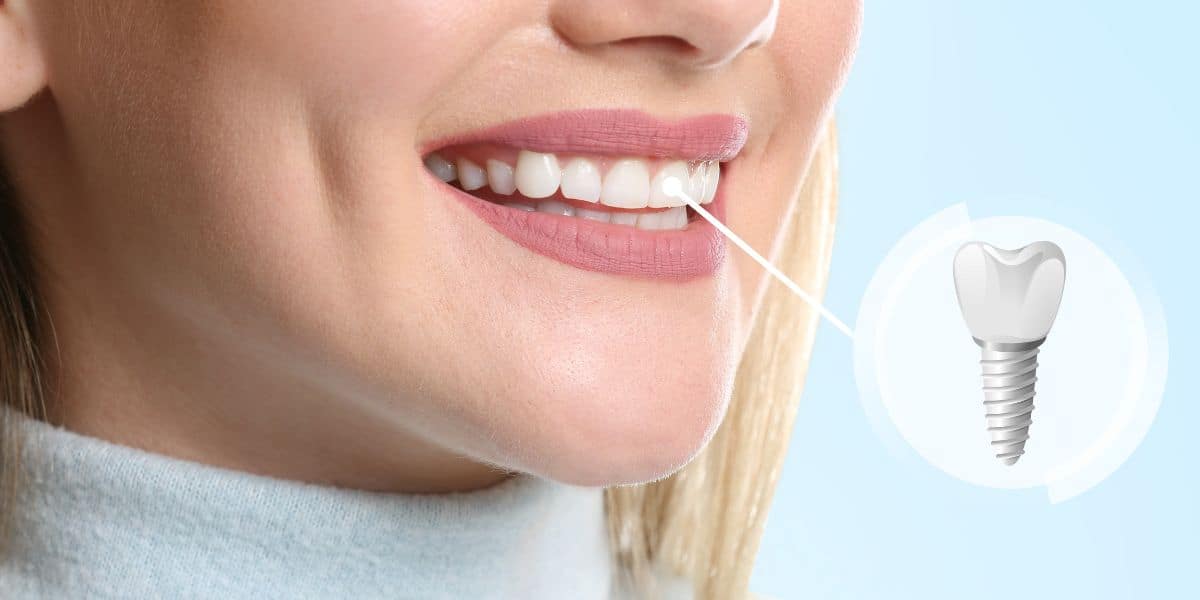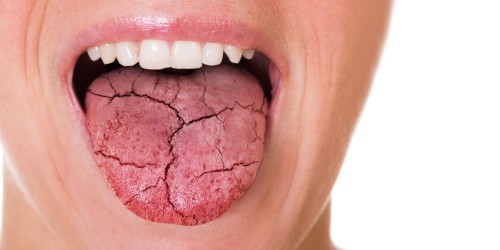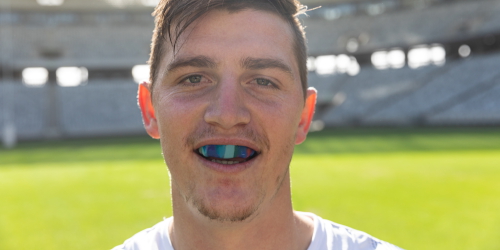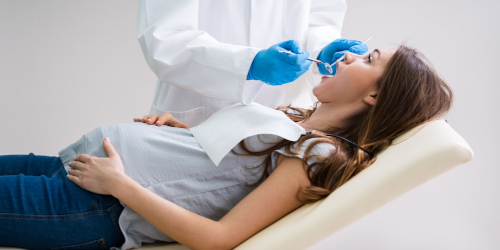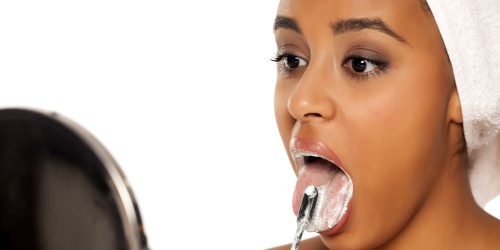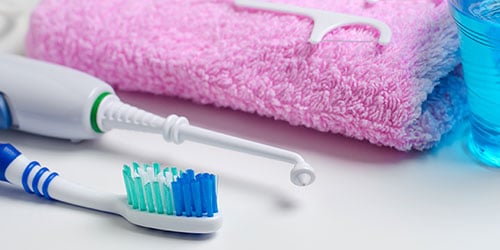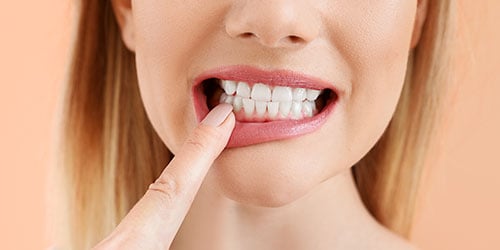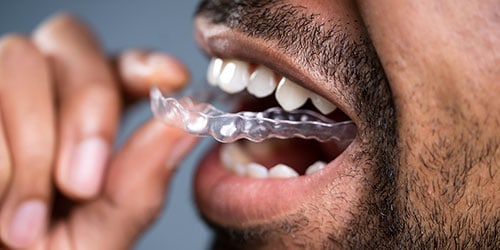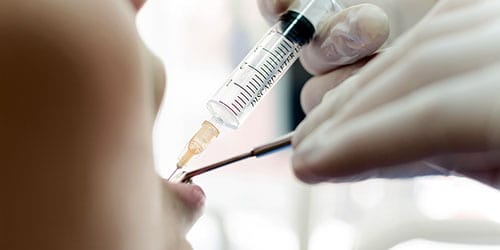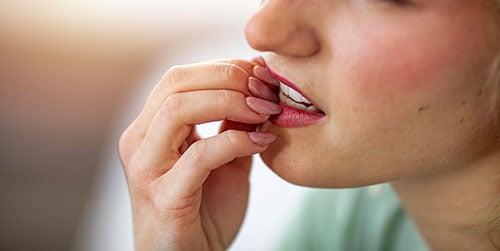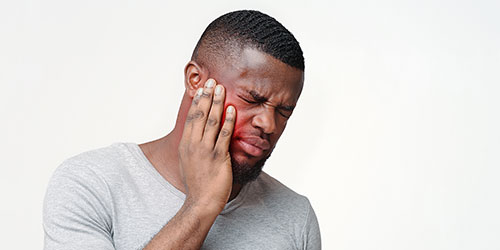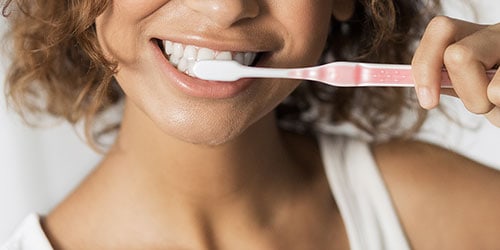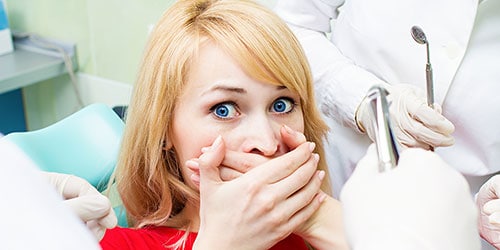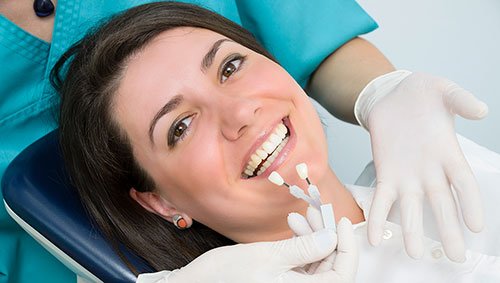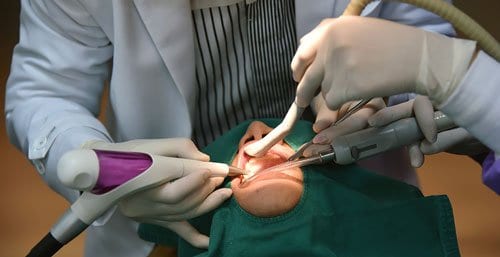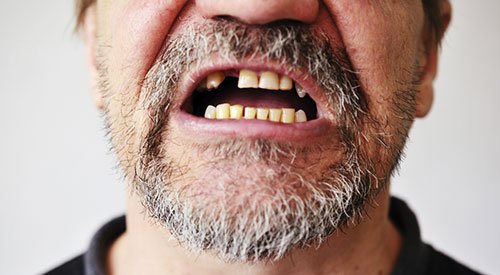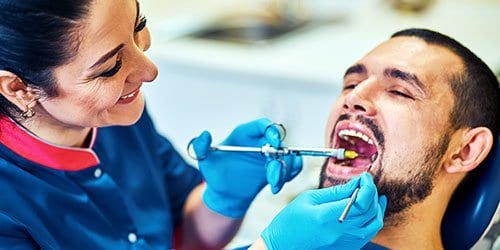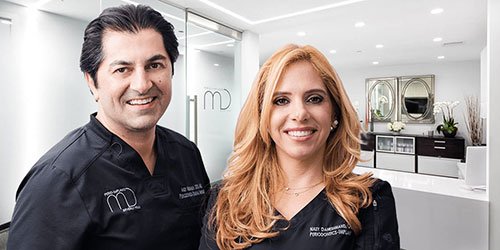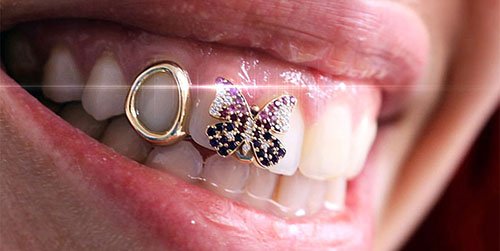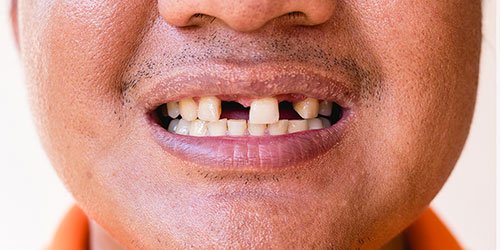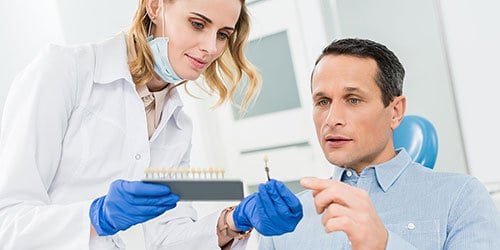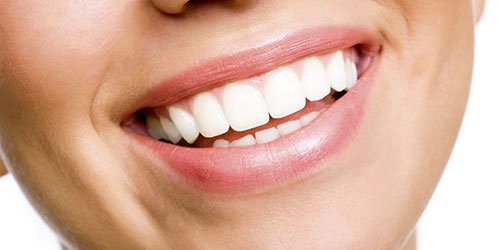
If you’ve found your way to our site, you may be wondering “do I need to see a periodontist?” According to the American Dental Association, almost half of Americans over 30 have chronic periodontitis. So, there’s a good chance you may actually need to see a periodontist.
Periodontist vs Dentist, what’s the difference?
You probably already go for a dental checkup twice a year and let the hygienist clean your teeth and lecture you about flossing. And periodontists also deal with teeth, right? So why see a periodontist if you’re already seeing a general dentist?
The difference is periodontists don’t actually just focus just on teeth. So what does a periodontist do? We at MD Periodontics of course want to help you keep all your natural, healthy teeth, but periodontists also treat the gums (gingiva) and bone structures that support your teeth, in addition to your teeth. We are dentists (DDS) who also have advanced training after dental school.
A dentist may also give a patient a referral to a periodontist for more advanced periodontal (gum) disease or complicated cases.
So, when should you see a periodontist?
Here are six signs you should see a periodontist ASAP.
1. Bleeding gums when brushing or flossing
A top sign of periodontal disease is bleeding gums. Bleeding when flossing is a sign of early-stage gingivitis (gum disease). But if you start getting bleeding gums after brushing or (even worse) unexplained bleeding after eating, you may have more advanced periodontitis and should consult with a periodontist.
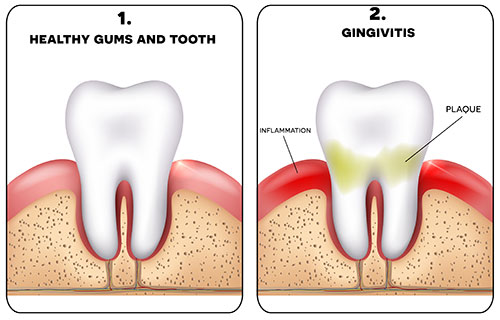
2. Red, swollen, tender Gums
The bacteria that cause gingivitis also cause inflammation. If left untreated, inflamed gums can create deep pockets around your teeth. Deep periodontal pockets increase your risk of tooth loss, so swollen gums should not be ignored.
Inflamed gums may also be redder in appearance rather than pink and tender to the touch. If you have swollen gums with pain or bleeding tender gums, call a periodontist!
3. Chronic bad breath (halitosis)
You may not think of bad breath as a warning sign of disease (after all, we’ve all overdone it on garlic at least once). But if you have chronic bad breath that doesn’t go away with good oral hygiene, it could be a sign of periodontal infection.
4. Hot- and/or cold-sensitive teeth
Advanced gum disease can cause increased tooth sensitivity due to a receding gum line and exposed roots. Temperature sensitivity in teeth can also be caused by eroding enamel, which is another potentially serious problem.
In short, if your teeth are sensitive to hot or cold food and beverages seek dental care to treat or halt the progression of whatever’s negatively impacting your teeth.

5. Loose teeth (in adults)
Once you’ve lost your baby teeth, the rest of your teeth (should) last forever. Periodontitis can deepen pockets around the teeth, making them loose. You may also notice shifting teeth.
If you’re having trouble chewing, notice a change in the way your teeth fit together or see new spaces between your teeth, make an appointment! Loose teeth are also a warning sign of bone loss, so early treatment is paramount.
6. Gum recession
If your teeth are looking longer, it could be because your gums are receding. Gum recession is a symptom of advanced periodontal disease and can have severe side effects. Loss of gum tissue around the teeth can lead to exposed roots or result in tooth loss.
Periodontitis vs Gingivitis, what is the difference?
Periodontal disease (or gum disease) is progressive. The early stage of infection is called gingivitis. If left untreated, it can progress into more advanced periodontitis. A thorough dental cleaning and good brushing and flossing habits can restore your oral health. Periodontitis, however, requires more advanced periodontal treatment.
Keep an eye on your oral health to know when to see a dentist or periodontist.
Gingivitis symptoms
Common symptoms of gingivitis include:
- Red, swollen gums
- Bleeding gums when brushing and flossing
Many people have gingivitis without realizing it because there isn’t any pain. It’s important to attend your regular dental cleanings so any gum disease can be diagnosed and treated early.
Periodontitis Symptoms
Your symptoms of periodontitis will be more severe the more advanced the infection is. Common symptoms include:
- Red, swollen gums
- Bleeding gums
- Sensitive teeth
- Sore gums
- Bad breath
- Loose teeth or teeth that change position
- Pain when chewing
- Receding gums
When the gums pull away from a tooth, they form spaces called gum pockets. These pockets can become infected, leading to more advanced periodontitis.
Periodontitis also comes with the potential for related health issues. Periodontal infections correlate with heart disease, diabetes, osteopenia, and osteoporosis. That’s why it’s important to get gum disease treated before the bacterial infection spreads through the bloodstream.
Periodontitis treatment
Once you have your periodontist appointment, the doctor will evaluate the progression of your gum disease and go over your treatment options.
Treatment options may include:
Gum grafts
If severe periodontitis has resulted in gum recession and loss of gum tissue, gum grafting may be necessary to restore oral health and appearance.
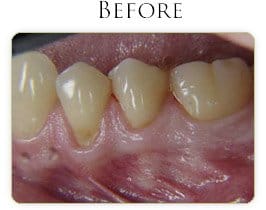
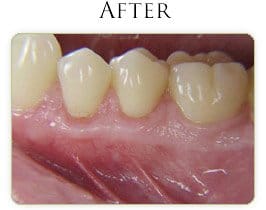
Bone grafting
As previously mentioned, advanced gum disease can result in bone loss and (ultimately) tooth loss. A bone graft can reinforce the jawbone to save existing teeth or build up sufficient bone for a dental implant.
Scaling and root planing
Also called “deep cleaning,” scaling and root planing is a non-surgical treatment that removes accumulated bacteria and plaque and smooths the rough surfaces of the tooth. This gives the gums a chance to reattach to the teeth and removes rough patches where bacteria can accumulate.
MD Periodontics: Best Periodontist in Los Angeles
Two of the most trusted and respected periodontists and holistic dentists in Southern California are the American Board of Periodontology-certified husband and wife team of Dr. Abdy Moshrefi, DDS, and Dr. Nazanin Daneshmand, DDS.
At our beautiful Beverly Hills offices, MD Periodontics offers patients the best periodontic treatment that Los Angeles has to offer. Our holistic approach to dentistry ensures that your treatment utilizes the least toxic materials available, the most advanced technology, and amenities including aromatherapy to minimize discomfort and stress during procedures. You’ll experience a supportive atmosphere you would never expect to find at a dental office and results that you will love.
To schedule a consultation, click here or call us at (310) 859-9449. Your smile will thank you!
We are conveniently located to patients throughout Southern California and the Los Angeles area. Our board-certified periodontists and implant dentistry experts are available at locations in or near Santa Monica and Beverly Hills. We are conveniently located near West Los Angeles, Culver City, West Hollywood, Downtown Los Angeles, Marina del Rey, Pacific Palisades, Malibu, Manhattan Beach, Sherman Oaks, and Encino.
- How To Pick The Best Dental Implant Specialist Near Me - September 17, 2024
- Can Bleeding Gums Be a Symptom of Something More Serious? - May 27, 2024
- What Is Hydroxyapatite Toothpaste, and Is It Better for You? - May 1, 2024
 (310) 859-9449
(310) 859-9449 6 Symptoms That Tell You When To See a Periodontist
6 Symptoms That Tell You When To See a Periodontist




